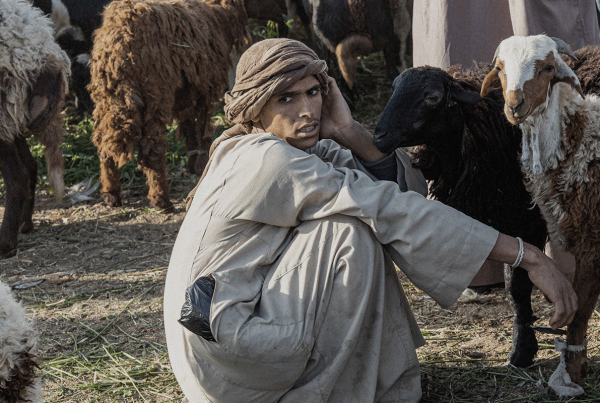Read this sentence and see how it makes you feel: There are millions of victims of human trafficking in the world right now.
Anything?
Try this one. Imagine a teenage girl you know. Think of her name. Maybe she’s your daughter, niece, or neighbor. Imagine that someone she trusted has tricked, manipulated, or forced her to sell sex to strangers. Her phone’s been taken away, she doesn’t know where she is, and she can’t get help. As she’s abused day after day, she feels like the world has forgotten about her.
Would you look for her?
the disconnect
The problem with human trafficking is not that we don’t have enough information. The problem is that we don’t connect to it. We hear ‘human trafficking,’ and we don’t have emotional context for it. The most we might have are media portrayals of prostitution, which don’t equip us with empathy or compassion. We think injustices that bad happen to people who are different from us.
Because we can’t connect, it makes it harder to understand the problem. It’s complex. We don’t know how it really works.
What if understanding the problem is as simple—and as difficult—as acknowledging the humanity of every single person who is literally sold like a product and abused? What if we could stop for a minute and just sit in the realities of these people with names, faces, families, and futures?
It would be uncomfortable. It would be downright painful. But maybe it would lead us toward action.
understanding with empathy
At The Exodus Road, whenever the U.S. staff gets a new rescue announcement—news from one of our investigative teams that a successful operation has occurred—we take time to celebrate and reflect.
Every few months, we practice an empathy exercise to help us connect with a real rescue that just happened on the other side of the world. We write down the names of people we know who are the same age and gender as the survivors.
Recently, we each wrote down the names of four boys, ages 14 to 17. We imagined that those four boys we know were the ones rescued—the ones who had been afraid, alone, and exploited. Suddenly, those four boys rescued in Southeast Asia aren’t just numbers.
We wonder how they’re feeling right now as they sit in a government home. We wonder if they are able to sleep at night. We feel their pain—even if just a fraction of it. We believe this is what it takes to form a real connection: wading into the dark waters that are someone else’s experiences and saying, I will feel this with you because you matter.
human trafficking terms & definitions
If you’re starting—or continuing—down the path of connecting with human trafficking and the people affected by it, we want to help you along the way. A good start is to break down the terms used in the conversation around trafficking and connect the ideas to real people.
HUMAN TRAFFICKING
Definition
The business of inducing a person to perform labor or engage in prostitution through force, fraud, or coercion.
Connect
A person makes a profit by kidnapping, abusing, threatening, deceiving, or manipulating another person to work or perform sexual services. The deceit and manipulation can look like a fake job offer, promised help with immigration, a romantic relationship, or a place to stay.
SEX TRAFFICKING
Definition
The illegal business of recruiting, harboring, transporting, obtaining, or providing a person (often a minor) for the purpose of sex.
Connect
Some sex trafficking situations are obvious; victims are kidnapped, abused, and unable to leave. Other situations aren’t as black and white, and individuals may not even realize they’re victims. Traffickers can be very emotionally and mentally manipulative, persuading their victims to believe they chose the situation or that they’re in a romantic relationship with their trafficker. For this reason, sex trafficking can often appear to be willing prostitution on the surface.
TRAFFICKER
Definition
A person who is engaged in the illegal transportation of people from one country or area to another, typically for the purpose of forced labor or sexual exploitation.
Connect
Traffickers keep vulnerable people in jobs that they don’t want—for manual labor, work of any kind, or forced participation in the sex industry. Sex traffickers can be called “pimps” in popular culture and use a variety of means to manipulate, control, and sell individuals for sex. A trafficker can range from someone exploiting a friend or family member to the head of a large criminal operation.
VICTIM
Definition
The Trafficking Victims Protection Act defines a human trafficking victim as a person induced to perform labor or a commercial sex act through force, fraud, or coercion. The Administration for Children and Families adds that even if victims initially offer consent, that consent is rendered meaningless by the actions of the traffickers to exploit them for labor, services, or commercial sex.
Connect
Men, women, and children under the control of traffickers are victims, not offenders, who typically have one or more layers of vulnerability that traffickers exploit for personal gain (e.g. unstable home, personal insecurities, mental or emotional disabilities, drug use, or history of physical or sexual abuse).
creating a free world
Empathy is one of your greatest tools in the fight against human trafficking. It will take a million small steps. We will sometimes fail and have to try again. But if we can have the courage to care about our neighbors and feel the experiences of others, we can help create a world where everyone is free.
The Truth about Sex Trafficking
Download our free eBook today.







